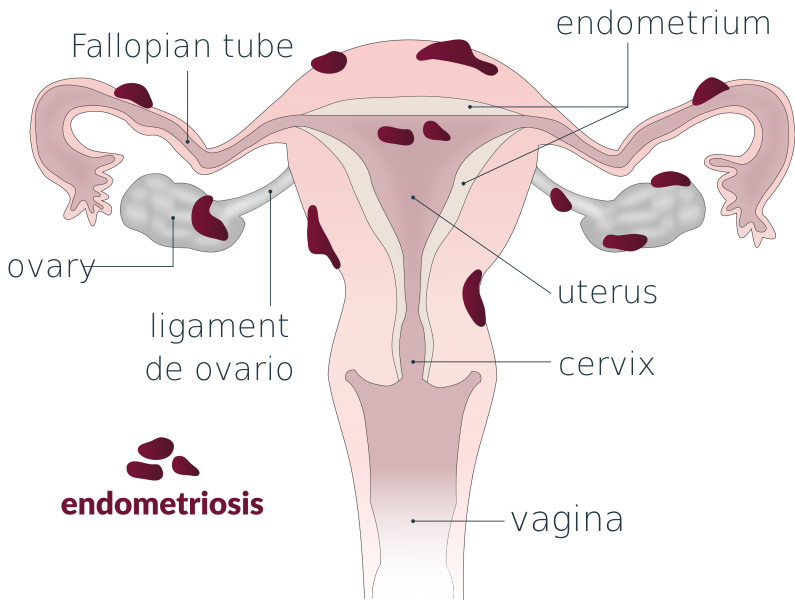Physical Address
304 North Cardinal St.
Dorchester Center, MA 02124
Physical Address
304 North Cardinal St.
Dorchester Center, MA 02124

Source: Wikipedia | vega asensio
Endometriosis – derived from the term ’endometrium’ – is a medical condition known to cause pain and fertility complications in women. According to recent research done in the United States, it affects about 2 to 10 percent of American women aged between 25 and 40. This article reviews the symptoms, causes, and risk factors of this condition and tells you how an endometriosis specialist in New Jersey might be able to help you.
Endometriosis is a medical condition where tissue similar to the tissue that lines the interior of the uterus grows outside the uterus. This tissue thickens, breaks down, and bleeds with each menstrual cycle, and since it cannot exit the body, it can result in severe pain and irritation. Generally, endometriosis mainly affects the fallopian tubes, ovaries, and the tissue lining the pelvis but may spread beyond the pelvic organs in rare cases.
One of the tell-tale signs of endometriosis is severe pain in the pelvic region, though this may also indicate other conditions. Other symptoms that could indicate a problem include:
The intensity of your symptoms does not indicate the extent of your endometriosis condition. This is because you could have severe endometriosis with little or no pain or mild endometriosis with excessive pain.
Unfortunately, the causes of endometriosis are not known as yet. One theory based on ”reverse menstruation” suggests the tissue that backs up through the fallopian tube into the abdomen, where it attaches and grows during menstruation, leading to endometriosis.
Another theory suggests that endometriosis spreads similarly to cancer in that endometrial tissue spreads and implants itself through blood or lymphatic channels. Another theory also suggests that cells in any part of the body can transform into endometrial cells.
The Mayo Clinic reports that about 30 to 40 percent of women with endometriosis have difficulties getting pregnant. However, through the surgical removal of the endometrial tissue, some women have been able to conceive. Others have had to opt for other fertility treatments to further improve their chances of getting pregnant.
Currently, there is no cure for endometriosis but, there are several treatment options that are performed to manage your symptoms and combat infertility. They include:
Due to recent developments in technology, there are other minimally-invasive treatments for endometriosis, such as the robot-assisted surgical removal of implants. Some women opt for surgical removal when they hope to have children or the pain is extreme.
If you are battling infertility or any of the symptoms discussed here, contact Dr. Ulas Bodzogan, an endometriosis specialist at the Advanced Endometriosis Center. Dr. Ulas uses advanced minimally invasive and nonsurgical approaches to help women suffering from endometriosis improve their overall health and wellness. Schedule a consultation online through his website or call his offices in Hackensack, NJ and New York City, NY to book an appointment.